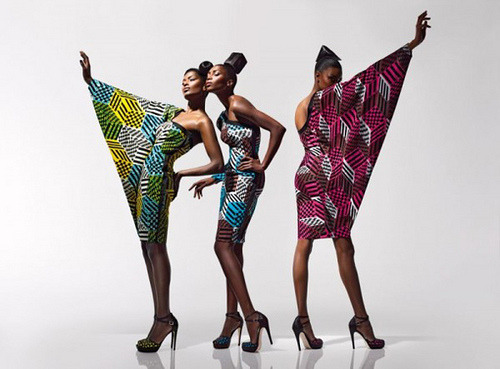The
contemporary African is often viewed as urban and culturally savvy – a
description much-aligned with the traits of an Afropolitan. With the evidence
of a growing middle-income class, the use of ‘Afropolitan’ to describe Africans
alludes to the rapid change towards African cosmopolitan lifestyles.

During
my recent visit to Ghana, I sat down with Kobina Graham of Dust Magazine and
Mantse Aryeequaye of Accra[dot]Alt to discuss the influence of Afropolitanism.
We
began our conversation by defining the term 'Afropolitan'. Kobina recalled that the term was
first used by Taiye Selasi to describe a group of young Africans with feet both
at home and abroad. These were all people who had moved from the continent to
study or work. This group had interests in music and fashion within which the
different cultures that influenced them collided.
My early
research into the term suggested some correlation between Afropolitan lifestyles
and the likelihood of becoming a leader. Kobina didn’t think that this was inherently
the case. He reminded me that there used to be this idea that if you were an
African raised abroad, you were somehow more exposed to the “right” way of
going about things (ie. civilization) and that it was your destiny to return
home and impart your “superior” knowledge towards making things better for the
“poor” people at home. “People with such lofty notions of leadership come home
to Ghana and discover that people on the ground have their own ideas and do not
really have time for yours.”
Hearing
this immediately reminded me of the gatherings I had attended with families abroad, where nostalgic conversations between the elders always
quickly turned into heated debates about the future of Ghana. These discussions
almost always ended with some form of consensus that Ghana – much like the
rest of Africa – was doomed because the people were not willing to change. So
if this was true and Ghanaians of the previous generations did not want to
change, what was the missing element we were finding in the contemporary Afropolitans today?
Mantse Arqueequaye suggested that the young generation of Africans today is much more exposed to globalized ideas due to their easy access to the Internet. With the availability of social media tools, this generation is much more culturally aware and can be easily mobilized for the achievement of philanthropic goals and community development. This summer Accra[dot]Alt organized its second annual street arts festival called the Chale Wote Street Art festival. Chale Wote’s successful turnout was partly attributed to the effective use of twitter and facebook to attract participants.

I asked
if there was a danger of losing our traditional heritages from the adoption of
international alternatives. Kobina was hardly worried. “Every Ghanaian today -
whether in or out of Ghana - is this hybrid amalgamation of cultural influences
from the country, continent and beyond. Kids in London jam to 'afrobeats' and
Maybach Music. Kids in Berekuso listen to Sarkodie alongside Rick Ross.”
The thought
of young Africans listening to Rick Ross was slightly disheartening. What about
Ebo Taylor and music groups like Osibisa? Wasn’t there a risk that young
Africans may neglect the balance and turn towards Western pop culture in an
effort to climb their social ladders? Wasn’t it worth it for young Africans to
consciously avoid this?
Kobina answered, “I think the main thing that anyone in Africa should be doing now, is
helping everyone else see the value in what is homegrown. Too often, we hold
everything about ourselves - our traditions, our fashion, our hair, our intellect,
our religion, etc, - in low esteem. Not everything indigenously African is
inherently good. However, not everything Western is inherently better than
anything African either. We need to learn to look at and appreciate both from a
level perspective. We have a lot of institutionalized self-hatred. Yet we
wonder why we are not respected. Why should others respect us if we don't
respect ourselves?” I wholeheartedly agreed.
Mantse
added that although tradition should be preserved, culture is not static.
Tradition can be defined as old culture. However, we make new culture everyday.
This can be seen in the popularity of the azonto and the dynamic, ever-changing
pidgin. Aside from preserving tradition, it is essential to examine and place
value on popular culture too. In terms of the development of Afropolitan
culture, it may simply be globalization at play. Therefore we can speculate
that it may succumb to the same fate as globalization.
We ended
the interview chatting about some criticisms of the term. We agreed that much
like most labels, the label of an Afropolitan has many deficiencies. Similarly, I have been critical of the use
of the term ‘African’ in dialogue and often avoid using it or allowing others
to use it as a generalizing umbrella term. The Afropolitan label has much value
because it acknowledges the unique cultural result of globalization for Africans.
This term is predicted to be outgrown as we delve deeper into its meaning and its implications.

No comments:
Post a Comment